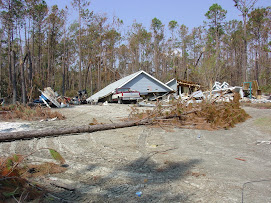Bill creates insurance oversight
Plan audits firms in flood program
Tuesday, February 05, 2008
By Rebecca Mowbray
On the heels of a federal report that found "an inherent conflict of interest" in having private insurance companies determine how much the government should pay on flood claims, Sen. Mary Landrieu, D-La., plans to introduce legislation creating an ombudsman to strengthen financial oversight of the National Flood Insurance Program.
Her bill would create the position within the Federal Emergency Management Agency to audit and monitor insurance companies and their subcontractors that do work for the government flood program.
The "report reiterates what we've long known -- when it comes to making sure the big insurance companies are living up to their promises, there's no one at the NFIP minding the store," Landrieu said in a prepared statement. "My legislation would create an independent office to make sure private insurers are acting in good faith, giving their customers the coverage they paid for. This ombudsman would be isolated from the political pressures of the powerful insurance lobby and have broad authority to hear and investigate complaints and stand up for insurance policyholders and taxpayers alike."
Homeowners policies generally exclude coverage for flood damage, so people guard against damage from rising water by buying policies from the National Flood Insurance Program. Flood policies are issued by the federal government, but private companies sell them alongside their homeowners products and determine the flood claims for the government after disaster strikes.
Consumer advocates, plaintiffs attorneys and individual homeowners began to question the arrangement after Hurricane Katrina, when private insurance companies had the power to determine whether damage was caused by wind, which they pay for, or water, which the government covers.
A study released last week by the Government Accountability Office validated those concerns. It found an "inherent conflict of interest" in having private companies with a financial stake in the outcome determine who pays for what. The report recommended that the flood program secure access to the wind files on homes that had flood damage to make sure the government is not overpaying, but FEMA resisted that suggestion.
Landrieu plans to introduce legislation to create Flood Insurance Accountability Act of 2008 before Congress adjourns for its Presidents Day recess Feb. 18. Landrieu's bill may come up for debate as the Senate considers overhauling the flood program before its authorization expires in September. The House of Representatives passed a flood insurance reform bill last fall.
Because other measures in Congress contemplate raising flood insurance rates on some homes that were built before the flood program was created in 1968, Landrieu said it's important to make sure that the program isn't subsidizing corporations before it raises premiums on homeowners.
"At a time when some in Congress are talking about raising flood insurance premiums on middle- and lower-income Louisianians, we need to make sure that this program is operating as efficiently as possible. This necessary step would fill a tremendous gap in the current oversight of the program," she said.
Landrieu's office said that the inspector general's office at the Department of Homeland Security, which houses FEMA, is not sufficient to monitor the flood program because the department has so many other responsibilities.
Her proposed ombudsman would have a broad mandate to investigate allegations of fraud and abuse, conduct random and systematic audits of companies working with the flood program, and investigate consumer complaints. A toll-free hotline would be established to make it easier for people to report concerns.
The ombudsman would have the power to subpoena computer and phone records and to compel testimony from people whose work relates to flood claims. The new position would have the power to investigate both insurance companies and vendors that provide claims adjusting, engineering and record-keeping services for the flood program.
To prevent the position from falling to a political appointee, Landrieu's bill will require the ombudsman to have an accounting, auditing, legal or management oversight background.
The ombudsman will report directly to the FEMA administrator, make an annual report to Congress, and have the power to recommend policy changes to Congress or the president. To ensure that the ombudsman is independent, the FEMA administrator will not be able to interfere with investigations. If the ombudsman is fired, FEMA will have to explain the dismissal to Congress within 15 days.
If evidence of overbilling is found, the ombudsman can levy damages worth three times the amount of the original claim. Cases of possible fraud or abuse would be referred to the U.S. Department of Justice.
Bob Hunter, director of insurance at the Consumer Federation of America, said that with FEMA turning a blind eye to concerns that insurance companies may be ripping off the federal government, Landrieu's bill is a good idea.
"No matter what the evidence is, the insurance companies can do no wrong. You need somebody who's there all the time," said Hunter, who ran the flood program in the 1970s.
If the ombudsman office is truly independent and has the money and staff to carry out its investigatory mandate, Hunter said, it shouldn't matter that it's located within FEMA.
Friday, February 8, 2008
Landrieu Legislation to Extract FEMA's Head Out of Their Ass.....
Posted by
Coastal Cowboy
at
5:32 AM
![]()
![]()
Labels: Coastal Cowboy, Consumer Federation, FEMA, Flood Insurance
Subscribe to:
Post Comments (Atom)

No comments:
Post a Comment